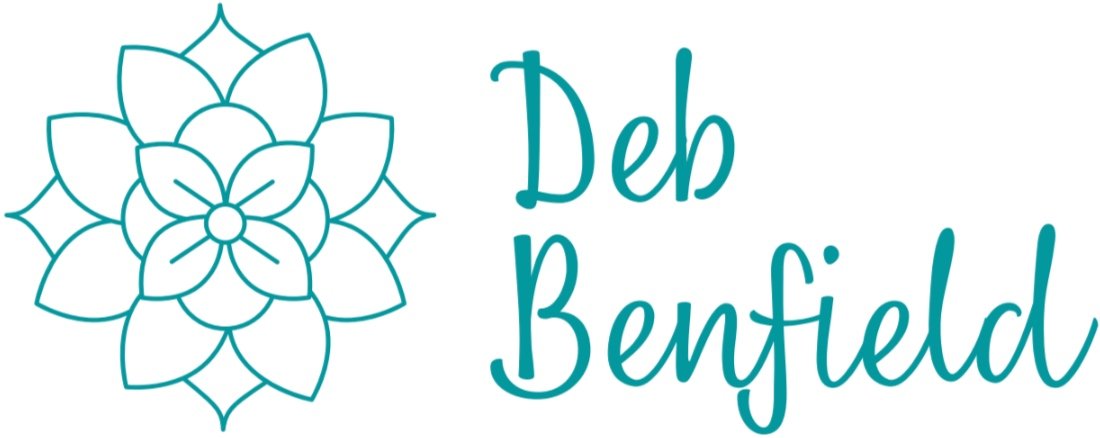Why Midlife+ Increases Your Risk of Disordered Eating
Maybe you’ve been trying to follow an eating plan of one kind or another for what seems like forever, and you are getting tired of it. The amplified noise about controlling your body and your diet in midlife is adding to your overwhelm and exhaustion.
Maybe you struggled with an eating disorder earlier in your life, and you worked hard to heal. With the changes in your midlife body, you feel increasingly pulled back into diet/fitness/wellness culture thoughts.
Maybe you’ve received some health news and feel frightened and anxious. Suddenly, controlling your diet and exercise seems like a must.
Maybe you’re watching a loved one struggle with an illness, and you're starting to follow influencers on social media that focus on diets for longevity. Now, you find yourself planning a major overhaul of your food choices.
Maybe you are starting to feel invisible in the world or irrelevant in your workplace or relationships. You want to feel like you are seen and that you matter. You find yourself wanting to lose weight.
Maybe your identity as a person who is “fit” and “healthy” feels like it is slipping away as your body changes. You need to be more extreme with your exercise and more strict with your eating plan to hold onto this part of your identity.
The last thing you want is for people to think you've "let yourself go".
Do any of these scenarios resonate with you? Midlife+ experiences can leave you thinking that you "should" focus on your diet and exercise.
Please give yourself some grace. There is a great deal of pressure to control your body in midlife+. It's understandable if you feel that you "should" be strict with your eating and exercise.
Our Body Hierarchy
Besides health fears and concerns, why are you MORE vulnerable to diet and wellness culture as you age?
We live in a culture with a clear body hierarchy. Youth is highly valued, and as we get older, we feel less relevant. We feel less visible and pushed to the margins.
Our culture also values thin and fit/able bodies. Bodies that are larger and less able are valued less in our culture's body hierarchy. I've discussed this in detail in past newsletters and on my blog. If you want to learn more, I recommend Sonya Renee Taylor's book, The Body Is Not An Apology.
We feel that we gain social currency if our older bodies are thin and fit/able (or working toward that).
Social media is full of praise of older bodies doing great things. I get it! It can feel "inspiring" to see stories of people in their 80s and 90s running races and lifting weights. And, understandably, you want to maintain your ability to function as you age.
I am curious how this strong narrative about thinness and fitness affects you as you age. This story contributes to the pressure you feel to push yourself HARDER as you get older. This pressure encourages a more disordered way of eating and exercising to achieve a body that gets attention, is valued, and belongs.
What about your mental health?
You are not hearing about the struggle of relapsing into disordered relationships with your body, eating, and movement. You are not hearing about the emotional burden of body shame.
To further complicate your experience, our culture normalizes and even praises restriction and more intense exercise, so it is hard to recognize that you are slipping into an unhealthy relationship with these thoughts and behaviors until you are in trouble. This is the case for all ages.
Disordered eating and exercise obsession are well-kept secrets for women in mid-life and older.
Protect Yourself
You are the expert of your body, and I respect and affirm that. I trust that you know what is best for you.
If you have a health concern or medical diagnosis that impacts your eating, this does not mean you cannot pursue body liberation.
Being anti-diet/wellness culture doesn't mean you have to eat all foods.
It means you get to make choices about how you nourish and care for your body that are rooted in your attunement with your body, not diet/wellness culture rules.
Discovering this sweet spot is a game-changer!
My mission is to encourage choices that support your well-being as you grow older while cultivating a pro-aging, body-liberation attitude!
Why I am Anti-Diet/Wellness Culture
Diet/Wellness Rules:
set up a way of seeing food, eating, and activity through a binary, black-and-white, all-or-nothing lens
are rigid and unsustainable
contribute to guilt and shame
fracture your connection to your body and your body's wisdom
disempower you as the expert on your body
do not invite you to become curious about yourself
increase your risk of obsessive and disordered thoughts and behaviors
The benefit of a body liberation attitude toward caring for yourself as you age is that it protects you from the potential damages of Diet/Wellness Rules while encouraging you to care for yourself. This process is rooted in the following:
attunement to your own body and the information available there
empowerment to know that you are the expert on your body
flexibility and is, therefore, sustainable
compassionate curiosity about yourself and your experiences
encourages you to develop a kinder relationship with yourself
supports your whole-person well-being
encourages freedom from guilt and shame
supports body peace
As you age, the beauty of body liberation is cultivating a more intimate relationship with yourself and your experience. This is available when you no longer focus on your weight and following diet/wellness rules.
I am fortunate to witness this mending and liberation in my courageous clients and group participants. I love this process and women like you who are willing to make their way toward body liberation and peace.
Please feel free to ask if you have questions or leave a comment. I love hearing from you!
With love and respect,
Deb
